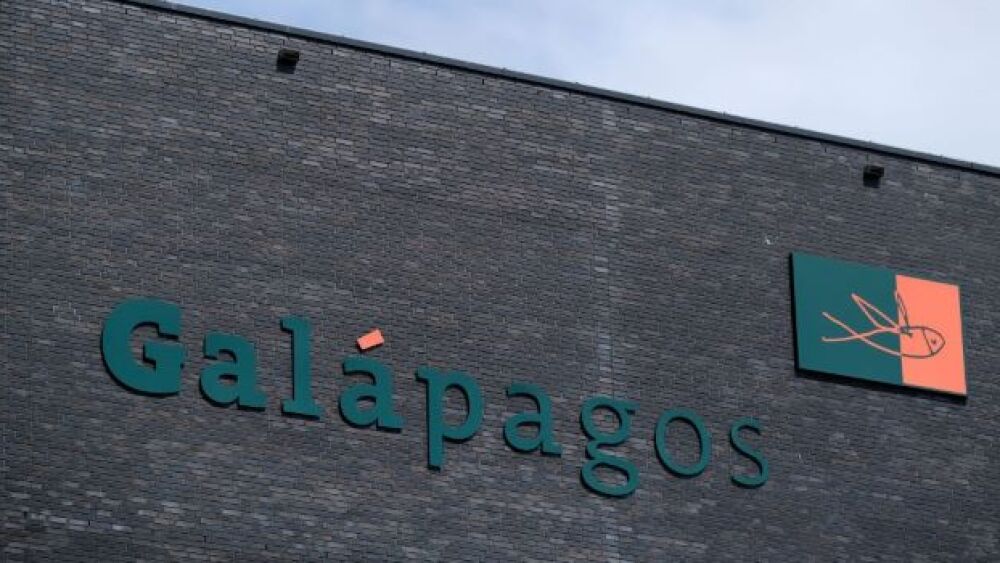Galapagos’ new “forward faster” strategy will see the departure of the company’s fibrosis and kidney disease programs and 200 staff members.
Yuriko Nakao/Getty Images
Eleven months after taking the reins of Galapagos, Paul Stoffels is reshaping the future of the company with a “Forward Faster” strategy that will see the departure of the company’s fibrosis and kidney disease efforts and 200 staff members.
Stoffels, the longtime chief scientific officer at Johnson & Johnson, took over as CEO at the Belgium-based company earlier this year. During Galapagos’ R&D Day call Friday morning, Stoffels said the new strategy is built on three pillars that include a shift from target-based discovery to patient-centric medical need research and development in the areas of immunology and oncology.
The two other prongs of the new plan will build on the company’s capabilities with CAR-T cell therapies aimed at well-validated targets. Galapagos also intends to increase its business development efforts aimed at complementing its current pipeline. As part of that, Galapagos will continue its long partnership with Gilead Sciences in order to bring new medicines to patients across the globe, Stoffels noted.
Specifically, Galapagos’ new operating model will focus its resources on immunology and oncology, both of which will be supported by new, externally-sourced opportunities.
With this new focus, Galapagos will discontinue its focus on fibrosis and kidney disease, according to the CEO.
The company intends to accelerate its immunology and oncology assets where it sees value in the near future, Stoffels said during the presentation. Developmental assets in the fibrosis and kidney disease area did not fit this model, he noted.
When making big changes at a company, Stoffels said one has to create a balance of what you want to accomplish versus what you’re willing to step away from.
“Can we do something transformational with Galapagos? Yes we can,” he said.
That transformational change does include some personell cuts. The company will reduce its headcount by approximately 200 positions across its sites in Europe to create room to reinvest in new capabilities and programs in the oncology franchise, Stoffels announced. He called the cuts a “difficult but necessary decision.”
Since assuming the role of CEO, Stoffels has already pushed the company along on its new path. Earlier this year, Galapagos expanded its portfolio with the acquisitions of CellPoint and AboundBio. The deals brought AboundBio’s next-generation antibody-based platform and CellPoint’s point-of-care cell therapy supply model under the Galapagos umbrella.
When CellPoint was brought into the Galapagos fold, Stoffels said it provided the company with “the people, capabilities and portfolio” to shift into the lucrative oncology space with clinical-stage programs in hand.
Upcoming Data and Trials
In oncology, Galapagos intends to present data from the ATALANTA-1 Phase I/II study of the CD19 CAR-T product candidate in patients with relapsed/refractory non-Hodgkin’s lymphoma at the annual American Society of Hematologists (ASH) conference in December.
Data from the study is expected to assess the safety and efficacy of the CAR-T that is manufactured at point-of-care and will provide clinical validation for the company’s CAR-T decentralized supply model.
Galapagos continues to recruit patients for both the ATALANTA study, as well as the EUPLAGIA study in relapsed/refractory chronic lymphocytic leukemia.
Outside of oncology, Galapagos plans to begin a Phase II study evaluating the TYK2 inhibitor GLPG3667 in dermatomyositis, an inflammatory disease marked by muscle weakness and skin rash, by the end of the year. The company is also enrolling patients in a Phase II trial in systemic lupus erythematosus, which is expected to begin next year.
Stoffels said the new strategy builds on Galapagos’ long-time history developing small molecule drugs with novel modes of action. He assured investors the company is not discarding this history. Galapagos continues to have a small molecule research organization that is now focused on immunology and oncology, rather than inflammatory, fibrotic and kidney diseases, he stated.
While the new strategy includes plans for potential M&A activity, Bart Filius, president, chief operating and financial officer at Galapagos, noted the company is not signaling plans for any multi-billion dollar acquisition but rather will look to add selective assets to its pipeline.
“We will do this on a measured scale and will be careful in doing so,” Filius said Friday, adding that the company wants to make sure any return will make sense both scientifically and financially.





